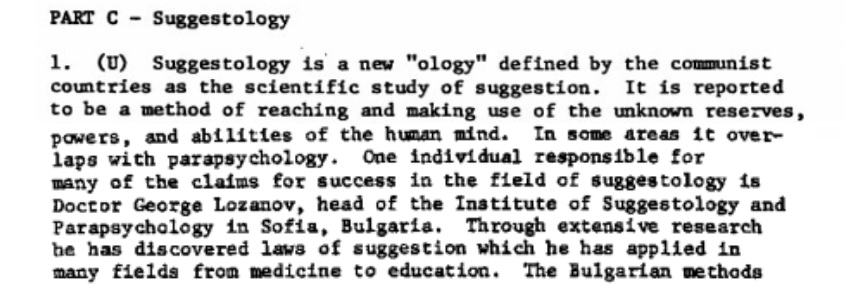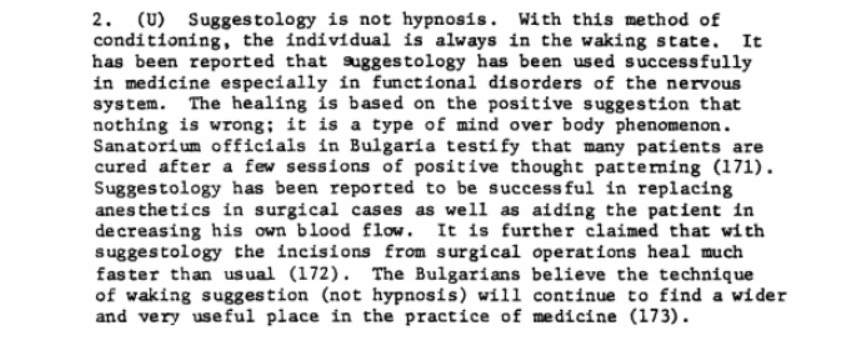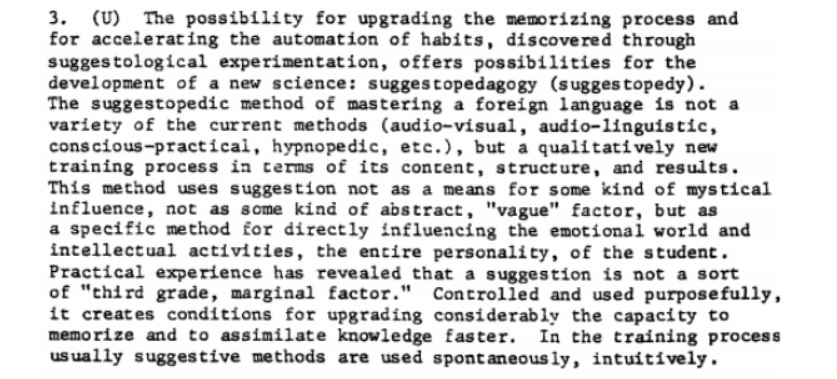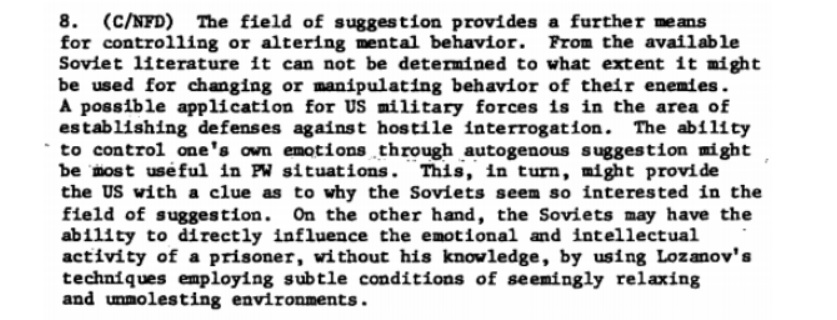A 1972 report for the Defense Intelligence Agency spends about four pages describing and worrying about “suggestology,” and the name is the least ridiculous part about it.
Described in the report as “a new ‘ology’ defined by the communist countries as the scientific study of suggestion,” suggestology was supposed to allow humans to tap into “the unknown reserves, powers and abilities of the human mind.” According to the report, “in some areas it overlaps with parapsychology” which is a bit of an understatement.

Exactly what is and isn’t suggestology is a bit murky. According to the report, “suggestology is not hypnosis. With this method of conditioning, the individual is always in the waking state.”

Except for when they weren’t.

And for the other times they weren’t.

Now that we’re (un)clear on what suggestology is, what does it do and how does it work?
Well for starters, it can help you learn faster! “Directly influencing the emotional world and intellectual activities, the entire personality, of the student … creates conditions for upgrading considerably the capacity to memorize and to assimilate knowledge faster.”

How much faster? “Five to fifty times faster.” (Also, it’s basically yoga.)

Okay, but how does it work? After insisting that it’s “not a variety of the current methods,” the report appears to explain that it’s a combination of all of them. Suggestology suggests using “all means of suggestion - authority, complexity, intonation, music, etc.” to create “a favorable psychological climate in class.”
Apparently this somehow “converts the training process into an emotion of joy.” It also apparently results in a “liberated” personality for the student. Whatever that means.

To the report’s authors, “the field of suggestion provides a further means for controlling or altering behavior.” Perhaps the U.S. could use it to help defend against interrogation techniques. “On the other hand, the Soviets may have the ability to directly influence the emotional and intellectual activity of a prisoner without his knowledge.”
It makes sense that the authors would worry about this, given the Soviet Union’s and Russia’s reputation for its kind and hospitable treatment of prisoners.

You can read the relevant section of the report below to read about the supposed medical uses of suggestology (whatever it is), or if you feel like wasting your money you can still find the ridiculous book on Amazon.
Like Emma Best’s work? Support her on Patreon.
Image of Georgi Lozanov “the father of accelerated learning” by Kaz Hagiwara via Wikimedia Commons and licensed under Creative Commons BY-SA 2.0.




